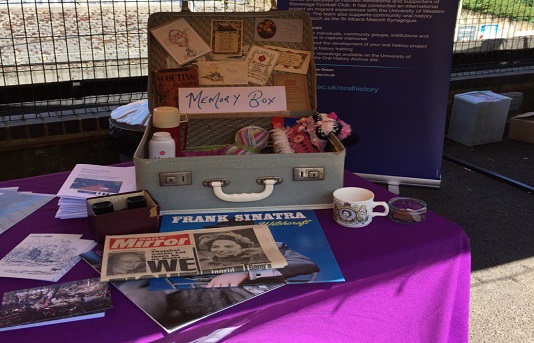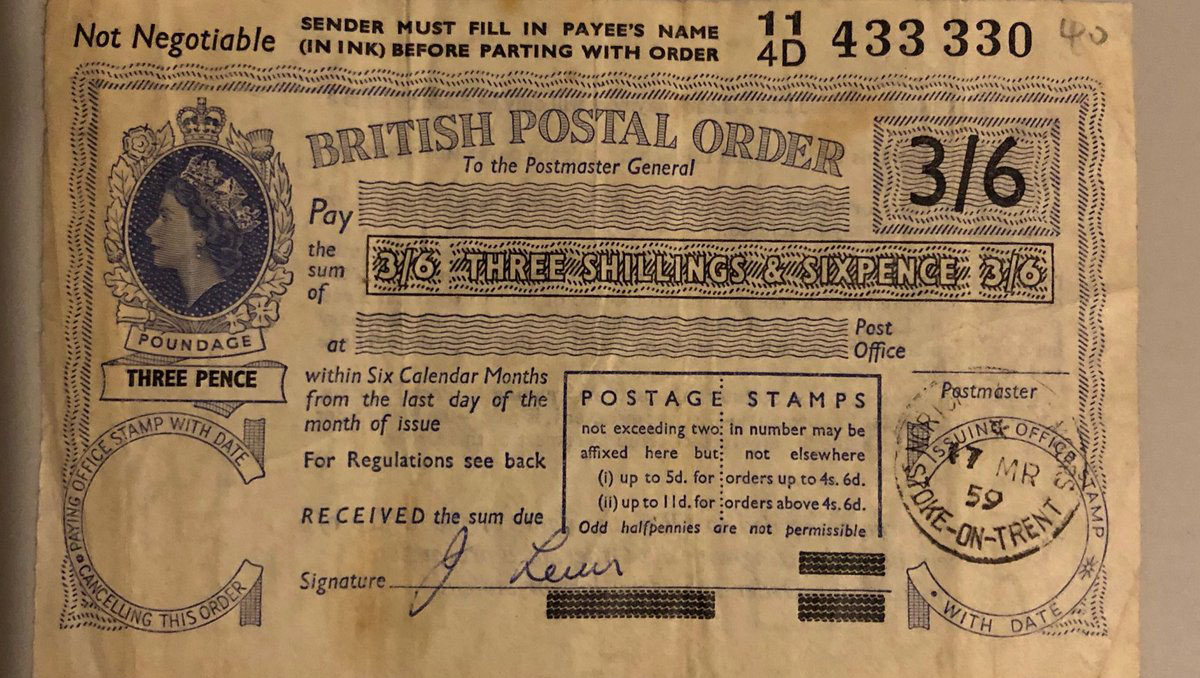Reminiscence events
Memories in a box
A new edition to the Oral History Team’s tool kit is the Memory Box which is proving its worth by assisting people to discuss and reminisce about their life.

There are now lots of companies producing memory boxes for use, especially in the care of dementia sufferers. Most use replica items and they often focus on a narrow theme. The Oral history team wanted a memory box to use in their oral history work and for external events but decided to create their own using a broader range of genuine items. This was quite easy to do using goods from local charity and junk shops, familiar brands in the supermarket, as well as shopping on eBay.
 The team have done some research and spoken to carers about what sort of things to include. It became clear that touch, smell and taste would be as important as the look of the items. They thought about how items might lead to reminiscing and conversations about the past.
The team have done some research and spoken to carers about what sort of things to include. It became clear that touch, smell and taste would be as important as the look of the items. They thought about how items might lead to reminiscing and conversations about the past.
The team were advised that it was good to include craft items, so have included some dress patterns and some knitting. They wanted to recall important events, both personal milestones and events in the news, and so the memory box contains vinyl records, birthday cards and a newspaper announcing the start of the Falklands War. The team are adding to the Memory box all the time. The latest addition is this British Postal order from 1959, worth 3 shillings and 6 pence.
Coins have interesting marks and textures and money is important to everyone so generates lots of conversations. The box also contains a savings book and stamps. Smell is very evocative and the bar of Wrights Coal Tar Soap provokes a strong reaction from everyone who picks it up. One sniff seems to transport people back to a particular place and time. Taste is also powerful and a can of Carnation Milk has sparked conversations about Sunday teas.
The box has proved a great conversation starter with people old and young and between generations and even across the world, with one visitor at a recent event taking pictures of our items to send to relatives in South Africa.
Reminiscence event in St Albans
The Oral History team were invited to reminisce with members of the Kingfisher Club, an activity group for people with dementia. This event was part of the Twenty Five 'Lives seen through food' Exhibition organised by Food provision in later life.
The team helped the group to reminisce about baking, recipes and food traditions. They used a variety of objects, including older cooking utensils and recipes, as well as the smells of spices. Professor Anne Murphy even shared some of her homemade cakes that had been baked using old-fashioned methods.
All of these objects were used as a prompt to generate discussion and help members to share their memories. This type of reminiscence is beneficial for people with dementia, as it is a non-confrontational way to talk and think about the past without feeling under pressure to ‘remember’ something specific. One member of the group was able to bring his wife’s 60 year old recipe book that was bought before they married. It included the recipe that was used to make their wedding cake.
Instant exhibition
The Memory Box was used by staff and students at the Cumberland Lodge conference to create an instant exhibition entitled 'Do You Remember? Everyday Treasures'. Eureka Henrich, a member of the History team, introduced the group to the skill of exhibition curating.
Eureka led the group to create an exhibition that was planned, designed, installed, launched and packed away in a matter of hours. People were invited to view the exhibition, and reminisce about the items in the box. Some chose to share these memories on the note cards provided. Visitors recalled their own experiences with View-Masters and album covers, as well as remembering their Grandmother knitting multi-coloured blankets and Teddy Bears for charity.
One visitor to the exhibition had a memory prompted by the section of the exhibition on memories surrounding food:
I remember buying a chocolate tea cake with a Threepence piece once a week at school.
Another visitor was able to touch and look through an old Post Office Savings book from Camberwell Green that began on 14 September 1948. Doing so helped to generate this memory:
I remember the Post Office Savings book. I still think I never drew the last money from my account and often wonder 50 years later if it is still there.
